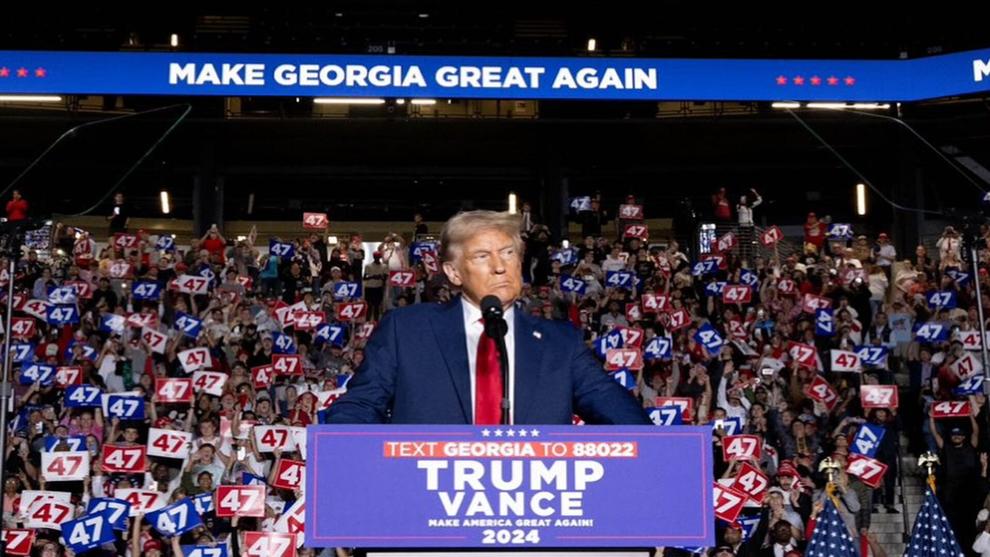From The Center Square
By Casey Harper
Former President Donald Trump has secured the White House, now raising the question: who will serve in his administration?
Trump admitted on the Joe Rogan podcast just before the election that one of his biggest mistakes in his first term was putting the wrong people around him, a critique that has been widely shared by Trump’s own supporters.
Now, Trump has another chance to stock his administration.
Trump announced Thursday that his campaign co-chair Susie Wiles would serve as White House chief of staff, a powerful, wide-ranging position where she will help form the new administration and steer its policies.
A range of Republican establishment picks are jockeying to lead the U.S. Treasury Department, State Department, Department of Defense and others, but here are a few of the highest profile potential picks to serve in Trump’s administration.
Robert F. Kennedy Jr.
Lifelong Democrat RFK Jr. ran for president as a Democrat and then became an Independent before finally backing the Trump campaign. Trump repeatedly touted Kennedy’s endorsement, saying that Kennedy would be kept far from energy policy because of his liberal views but would be allowed to work on health issues.
Kennedy has declared a war on junk food and speaks passionately about chronic health issues and how the American food industry and the Food and Drug Administration policies have helped create the chronic disease epidemic in the U.S.
RFK is considered a likely leader in the administration, probably in a health role. RFK has recently publicly said that “entire departments” at the FDA need to go because they are failing or even doing harm.
“They’re not protecting our kids,” he told MSNBC in a recent interview. “Why do we have Fruit Loops in this country that have 18 or 19 ingredients and you go to Canada and it’s got two or three?”
Elon Musk
Musk gave Trump a full-throated endorsement and helped propel him to victory with his posts on X and his financial backing. WHile Musk is more than busy running several successful companies, Trump publicly said he would pick Musk to improve government efficiency.
Musk gained a reputation in that department when he bought Twitter, fired much of the staff, and still kept the company running. Musk expressed surprise at just how inefficient and wasteful Twitter was when he took over.
“I will create a government efficiency commission tasked with conducting a complete financial and performance audit of the entire federal government,” Trump said in September.
Tulsi Gabbard
Gabbard served as a Democrat in Congress but later backed Trump on the campaign trail. Gabbard is known for her foreign policy chops and military service, potentially positioning her for an ambassadorship or State Department position.
Gabbard told Fox News in September that she would be “honored” to serve in Trump’s administration. The same month, she also told a crowd at the Georgia Faith and Freedom Coalition that she could help Trump prevent WWIII and deal with the military industrial complex.
“I feel I can make the most impact in these areas of national security and foreign policy, and work to bring about the changes that President Trump talks about,” she said in her speech.
Vivek Ramaswamy
During the Republican presidential primary, billionaire and former Republican presidential candidate Vivek Ramaswamy quickly built his popularity and reputation as an erudite speaker and younger mouthpiece for many of Trump’s ideas.
He also refrained from attacking the President-elect and called for abolishing the Department of Education. He could oversee the dismantling of that agency or be placed somewhere in the Commerce Department or elsewhere, where his business background would serve him well.
Notably, Ohio Gov. Mike DeWine, a Republican, will now need to appoint a U.S. senator to replace Vice President-Elect J.D. Vance. Ramaswamy lives in Ohio and could make the cut.
Scott Jennings
Scott Jennings has gone viral online in recent days for his commentary on CNN where he clearly defined Trump’s victory as a coalition of working class people as the mostly liberal panelists fretted over Trump’s victory.
Several viral clips have led to preliminary calls for Jennings to serve as press secretary.
“Scott Jennings = strong candidate for White House press secretary or communications director,” Real Clear Investigations senior reporter and New York Post columnist Paul Sperry wrote on X, one of several to make the same point. “He has been excellent throughout this campaign, arguing effectively as the lone GOP voice on a hostile, biased CNN panel, while keeping his cool and class.”
U.S. Sen. Marco Rubio, R-Fla.
Sen. Marco Rubio was considered on the short list for vice president. While Trump will need the support in the Senate, Rubio could be repurposed in a position that utilizes his focus on national defense.
North Dakota Gov. Doug Burgum
Burgum was also considered a vice president contender. His wealth and business background could put him on the short list for the Small Business Administration or another economic-related role in the new Trump administration.
John Ratcliffe
Former lawmaker and congressman Ratcliffe served as director of National Intelligence and is considered a potential pick to serve as attorney general.
















